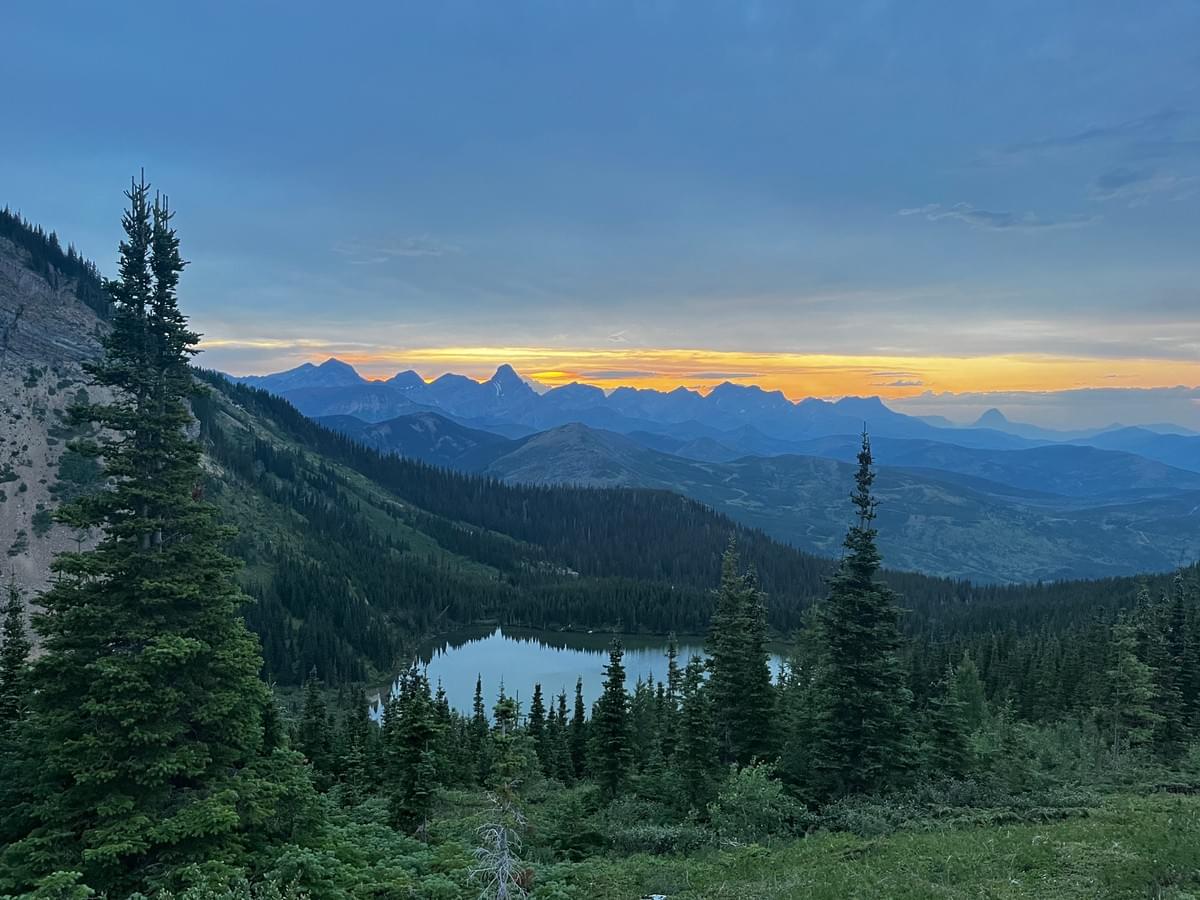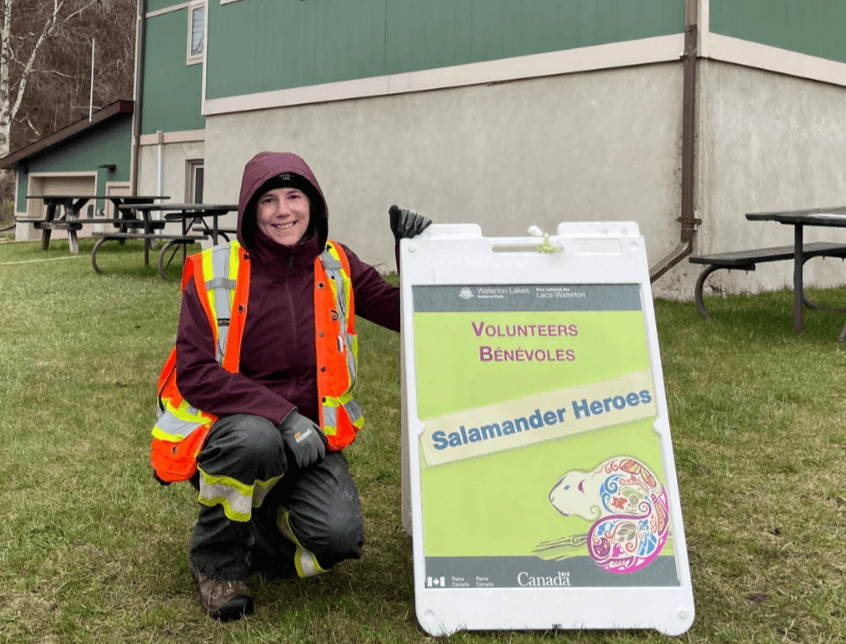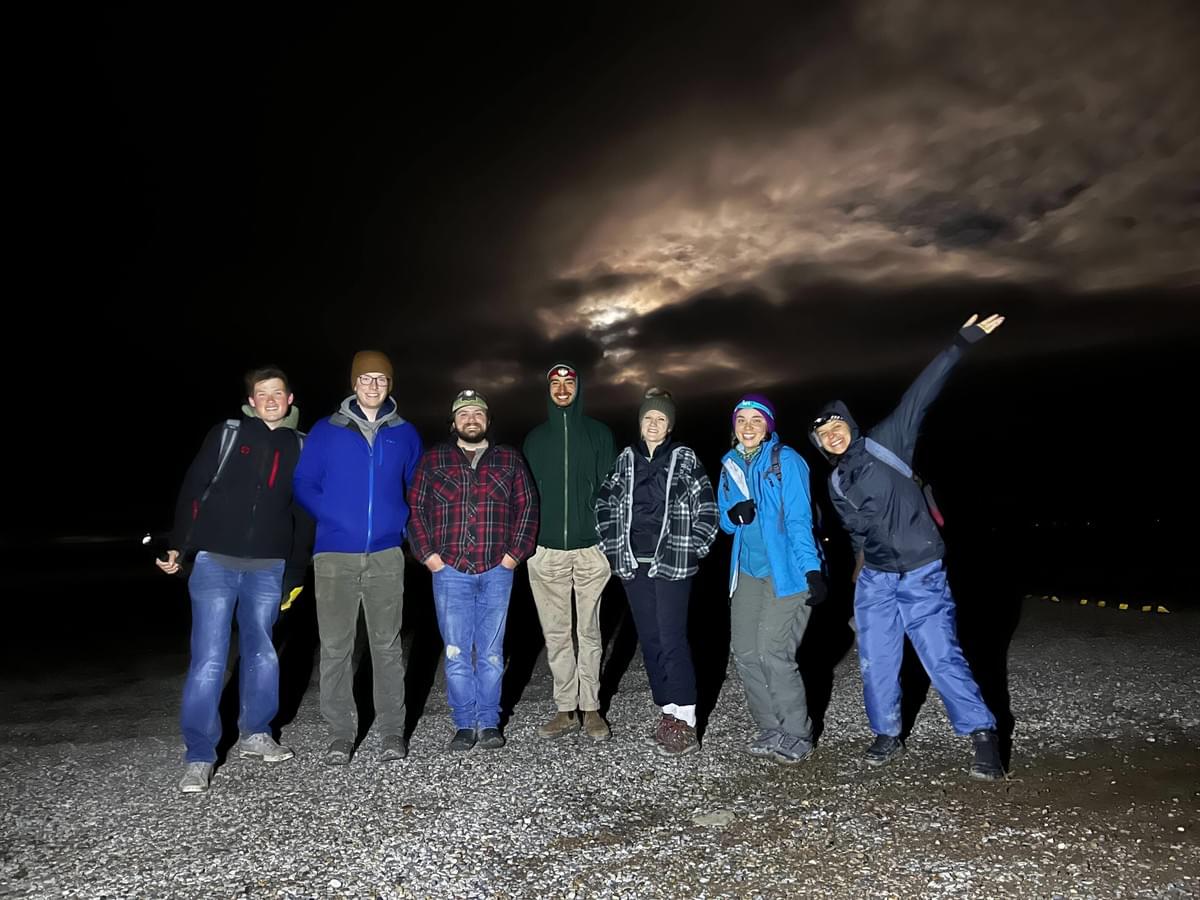

Interested in joining the lab? Read on!
Please note, I am not accepting new students for the 2026-2027 academic year. Whenever we have new positions, they are advertised at the bottom of this page. Please read this page carefully before contacting me.
A word about funding
Funding is THE single most limiting barrier when it comes to joining an academic research group in Canada. I'm posting this section because I am committed to open and honest communication about how funding works, what you can expect in my lab, and what is expected from people joining the lab.
Explanation, advice, and expectations
Note: This section is mainly for prospective graduate students and post-docs but it is important for undergraduate students to also have a general sense of the funding situation in Canada well ahead of applying for graduate studies.
Graduate students
You should enter a graduate program (any program in the world) with a clear understanding of how much funding is available to you, where this funding comes from (as there are implications for you in terms of what is required of you), what fees you will have to pay (on top of living expenses), and having assessed your finances and made a financial plan for yourself.
Here is some general information about how it works for Biology at uOttawa (and many other institutions in Canada) but note that for the most accurate and up-to-date information, refer to the university website:
At uOttawa, graduate students are guaranteed a minimum level of support. The typical graduate stipend for a student is made up of 1) salary you are paid as a teaching assistant and 2) a guaranteed minimum level of stipend support from grants that your supervisor holds. I aim to top students up beyond the minimum amount but extra support is contingent upon your success with scholarship applications and/or my success with grant applications (see below) and is not guaranteed if applications are still pending when you start your program.
Unless you receive an entrance tuition award, you will pay tuition from the support offered to you, as well as student fees. Note: Masters students from outside of Canada pay substantially more in tuition than Canadian students; Currently international PhD students with a high GPA are offered a tuition award that covers most of the extra international fees. And of course, you'll need to pay living expenses on top of this.
I may not be able to take a student if I do not have have existing funds to meet the minimum guaranteed support (and even if I do, the situation may still be unaffordable depending on the financial situation of the student). Many promising students are turned away from labs in Canada for this reason.
Post-docs
It is uncommon for me to have funding to support a full post-doc salary in the lab but please contact me to discuss potential upcoming opportunities and funding options.
So how can we make it work? (graduate students and post-docs)
First. Contact me (or any prospective supervisor) as early as possible because securing funding takes time (if a funded position is advertised, timelines are relaxed a bit but you'll still want to apply for major scholarships/fellowships, and those deadlines may be up to a year in advance of your program start).
Second. I expect students and post-docs to apply for external scholarships/fellowships (suggestions below). External scholarships are a clear way to guarantee that minimum required support levels are met but also provide significant top-up to students. Students and post-docs who receive external funding also have more flexibility in terms of being able to develop their own research projects within the main themes of the lab. These scholarship are important and I offer students and post-docs a lot of support during development of these applications.
Third. It's mostly going to come down to successful grant applications. Securing funding is a PI's responsibility but graduate students and post-docs have several roles to play. Here's what I expect and why:
- Many grants have deliverables outside of standard student theses or academic papers. These are things we promise to accomplish and deliver to the funder in return for the funding. In our case, much of our funding is in exchange for data to support specific conservation goals. Students and post-docs funded off of these grants take on shared responsibility for these projects and have a major role to play in working diligently and efficiently to meet our deadlines in this regard. We run the risk of losing funding (and more importantly, could jeapordize conservation programs) when we fail to deliver on our grant promises.
- Writing funding applications requires a substantial investment of time and PI time is at a premium. To free up my time for grant application development, I expect all lab members to work with a high level of independence, contribute to basic lab and project operations (helping to organize lab meetings, apply for the collection permits needed for your fieldwork, etc.), and to participate in the mentorship and training of new lab members (pass on the training you have received).
- Depending on your project, there may be opportunties to apply for grants to support non-stipend research costs (see below). Effective grant writing is an important skill to develop in academic biology (and in other sectors, especially if you plan to do conservation work) and so I encourage students to apply for these grants. Furthermore, when students receive funds that help cover research costs, that frees up lab funds for salary top-ups, conferences, etc.
- Finally, research costs what it costs but I expect everyone in the lab to help take care of lab equipment so that it lasts us longer and to avoid wasting supplies etc.
Some scholarship and grant opportunities
his is not an exhaustive list. I will update it over time but I also encourage prospective lab members do some digging to find other opportunities.
Undergraduates, please next section.
Graduate students
Canadian Citizens/Residents
- National Science and Engineering Research Council of Canada (NSERC) Canada Graduate Research Scholarship--Master's program
- National Science and Engineering Research Council of Canada (NSERC) Canada Graduate Research Scholarship--Doctoral program
- Ontario Graduate Student scholarship (OGS)
International
- Fullbright (US citizens)
- National Science and Engineering Research Council of Canada (NSERC) Canada Graduate Research Scholarship--Doctoral program (international applicants must already be enrolled in doctoral program at the time of application)
- Search for other award opportunities based on country of citizenship here
Post-docs
Canadian Citizens/Residents
- Canada Postdoctoral Research Award Program
- Liber Ero Fellowship (must be developed with conservation partner)
- Mitacs Elevate (requires matching funds from partner organization)
International
- Canada Postdoctoral Research Award Program
- Liber Ero Fellowship (must be developed with conservation partner)
- Mitacs Elevate (requires matching funds from partner organization)
- Marie Curie
- Marie Sklodowska-Curie
Other places to look:
uOttawa website here (grad students) and here (post-docs)
Aerin Jacob's extensive list of awards
Marissa Baskett has a list of funding opportunities and all sort of other great resources here.
Talk to other students! Find out where they have found support!
How our recruitment process works
* undergraduates, scroll down to bottom of this section for relevant information
1Get ready to reach out
Prospective graduate students: Because of the timelines for scholarship applications in Canada and evaluation of entrance awards at uOttawa, I strongly encourage you to reach out to me at least a year in advance of when you want to start. This timeline is relaxed for students who apply to work on funded projects (follow timelines in the posted position).
Prospective post-docs: Unless advertised, I do not have funding to cover post-doc salaries. Interested post-docs should contact me to discuss NSERC and other opportunities to develop a funding application (see above). These applications take time to develop and you will want to contact me at least six months before you are hoping to start and ideally in summer as most fellowship applications have fall deadlines.
2Email me (Dr. Lee-Yaw)
The lab has a formal process for considering applicants. I am not able to respond to inquiries about posted positions until I receive the following information:
1) A statement clearly outlining your research interests and career goals
2) A statement explaining how your previous experiences and training have prepared you to undertake the type of work we do in my lab. I do not expect your experiences to be perfectly tailored to current research projects in the lab but I am looking for specific insight as to how your previous coursework or training may apply to graduate studies/project work in my lab, especially if you are coming from outside of Ecology, Evolution, or Conservation Biology.
3) Your CV and transcripts (official transcripts are not needed)
I will do my best to respond within a week (feel free to remind me after that as emails sometimes get lost).
Applicants whose research interests and experience seem to be a good fit for the lab will subsequently be asked to submit a proposal outlining potential work they could undertake in the lab as well as the contact information for three referees.
3Meet the team
I meet with applicants one-on-one. During this meeting, I will tell you a bit more about the lab and ask you a set of standard questions aimed at getting to know more about your interests and experiences, approach to research, and what you are looking to get out of your time in the lab. You will also have a chance to ask me any questions about my style, the lab, uOttawa, etc.
Following this meeting, we arrange for a separate meeting with the rest of the lab. Usually during this meeting, we ask applicants to give a 15-30 minute talk about their previous research (recycled conference talks are fine!). This brings the lab up to speed on your interests and experiences. I leave after the talk to give applicants an opportunity to meet with current lab members and to "interview the lab". It is also an important opportunity for current lab members to get to know applicants and have a say in who we recruit--afterall students spend a lot of time working with one another and should have a say during recruitment.
For post-docs, this is typically the final step!
4Apply to graduate studies at uOttawa
The final step is a formality for applicants who are invited to join the lab.
The typical deadlines for application to the biology program at uOttawa is February 1 for a May or September start and September 1 for a January start. Applications can be submitted outside of these dates but students are not guaranteed consideration for an entrance tuition award if they miss these deadlines.
To apply, you will be required to submit:
- unofficial transcripts
- a copy of your NSERC, OGS proposal or equivalent style proposal
- letters of support from two referees
- International students whose first language is neither French or English also require proof of language proficiency.
Check the uOttawa website here for official information on admission requirements and here for the steps to apply.
Undergraduates
Undergraduates make meaningful contributions to our research program and we are excited to work with junior students! Here's how you can get involved in research in the lab!
Single-semester opportunities
We are happy to consider work study, USRO, and co-op students. Students enrolled in those programs should keep an eye out for ads at the appropriate times during the year.
On occassion we have part-time technician positions available outside of these programs. When available, these positions will be advertised below. We don't usually work with students on a volunteer basis. However, we occassionally have opportunities for students to participate in fieldwork in exchange for room and board or one-off events designed for students to explore whether field or labwork is for them.
Outside of formally advertised positions, I'm always happy to talk about research with uOttawa students so feel free to reach out!
Honour's Thesis
The lab is happy to work with two or three Honour's Thesis students each year. Students in the co-op program or who are eligible for an NSERC USRA are encouraged to email me no later than the December before their Honour's year to explore the possibility of engaging in data collection in the summer before their official Honour's course begins.
Positions for the 2026-2027 academic year have been filled.
Funding opportunities for Undergraduates
Click here to learn more about funding opportunities for uOttawa undergraduates.
- NSERC Undergraudate Summer Research Awards (open to Canadian students from any institution; these awards are very competitive typically awarded to students with GPA equivalent of +90% average)
Current funded openings
There are no fully funded openings in the lab at this time.
Lee-Yaw Lab
Department of Biology
University of Ottawa
30 Marie Curie
Ottawa, ON
K1N 9B4
Contact
jleeyaw[at]uottawa[dot]ca
J.A. Lee-Yaw © 2023















